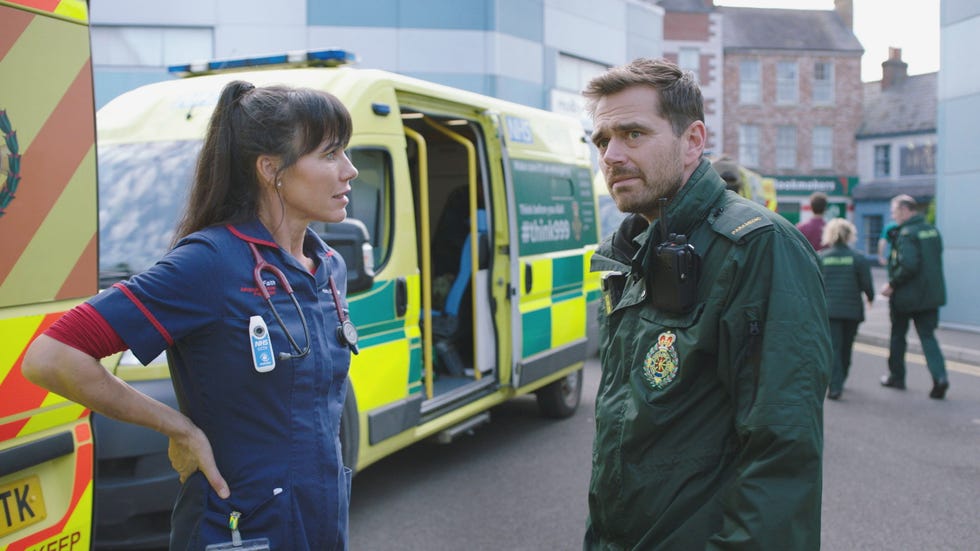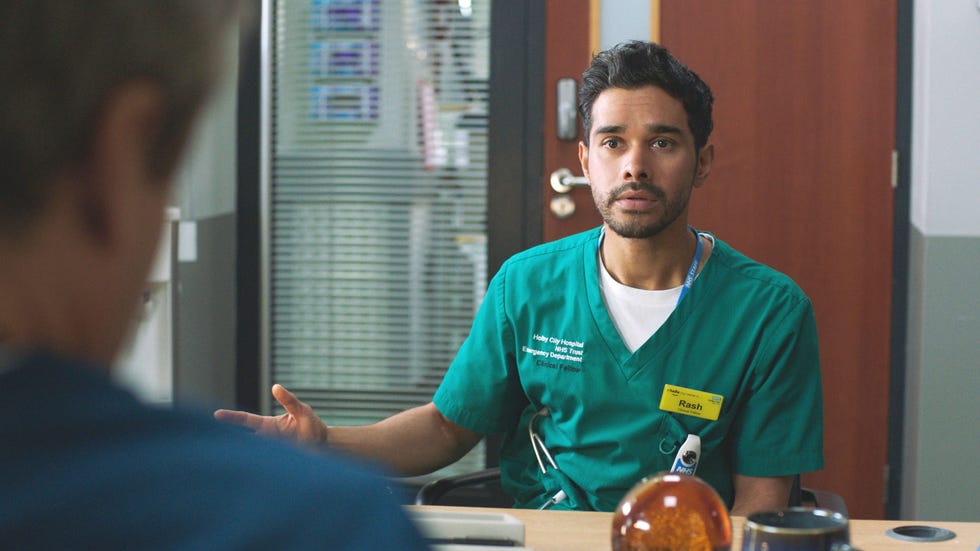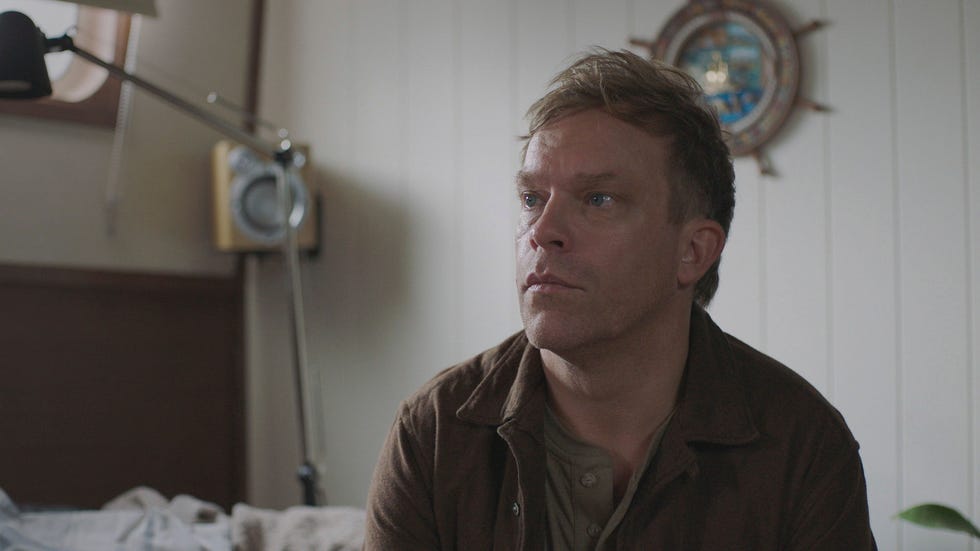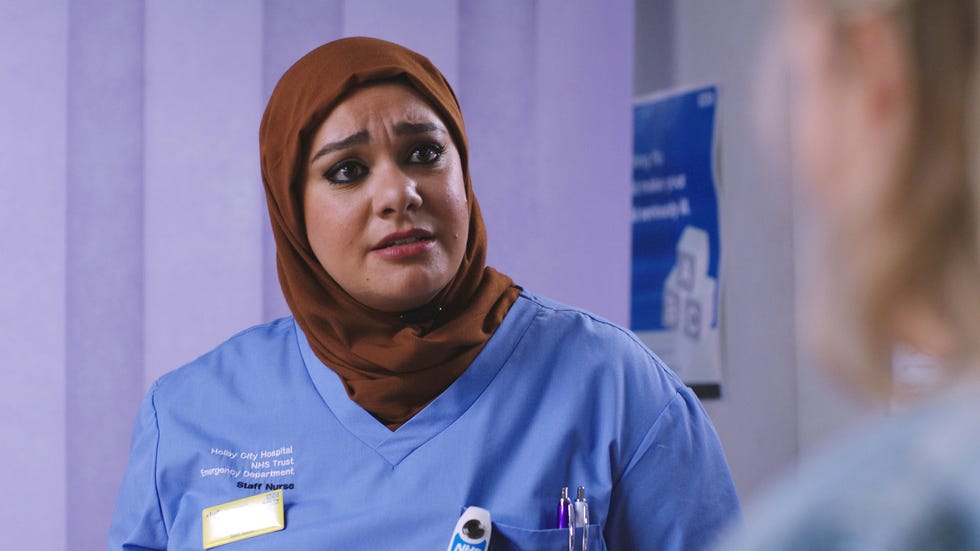The show continues to give NHS staff a voice.
Casualty is a show that has never shied away from telling stories about mental health. In recent years, the medical drama has sensitively depicted David’s bipolar disorder, Duffy’s anxiety and depression and Iain’s suicide attempt.
But the recent format change – shorter box sets of episodes with an overarching theme – has given the show the opportunity to take this further and put the topic at the forefront of the action.
The current series, titled ‘Breaking Point’, is exploring the mental-health struggles of not only patients but the staff at Holby.
This is incredibly timely, as a recent poll from NHS Charities Together has revealed that three in four NHS staff say they have suffered with a mental health condition in the last year.
With this shocking statistic also came a harrowing advert from Frontline19 in the style of CCTV footage that shows the pain workers are experiencing while on the job.
The video says: “With over half suffering from poor mental health, many NHS workers are sicker than the patients. Not that they’d ever let you see it.”
This is precisely why a show like Casualty is so important, because here viewers do get to see these mostly hidden struggles, and in this series, we get to see them in more depth than ever before.
The most prominent character this series is doctor Rash, who lost his dad during the previous series and then struggled when he returned to work, clashing with new clinical lead Patrick. The pressures of the Emergency Department led him to break down during a shift, with a stellar performance by Neet Mohan.
“I feel like everything’s broken,” he said, “and I don’t know what I’m supposed to do to make it better. It can’t carry on like this. Something has to change.”
Importantly, Casualty didn’t just show Rash’s breakdown, but it is sticking with the story and tracking his attempts to seek help. There are scenes which candidly show his online counselling sessions, and while a breathing exercise is shown to help him during a difficult shift, Rash’s story is a continuing journey with ups and downs.
Then there is Dylan, who is currently taking time off following the unavoidable deaths of two patients in his care. As viewers have known Dylan as a confident and focused doctor for over a decade, it is sad to watch him questioning his abilities so deeply this series, and William Beck is once again proving what an asset he is to the show.
Meanwhile, other staff have their own struggles. Paramedic Teddy is currently haunted by a traumatic event during a shift, and Ngozi and Nicole are both dealing with personal issues outside the hospital.
The team are set to face even more pressure when in upcoming episodes, a Panorama-style documentary gets released about the hospital, with some staff fearing they look incompetent in the footage.
This series has also highlighted how the system is failing patients with mental health conditions with the compelling story of Fern, who had borderline personality disorder and was admitted to the hospital following a suicide attempt.
While Rash was determined to get her a mental-health assessment and suitable treatment, the chaos of the ED meant she was instead moved to the corridor and later discharged.
After being readmitted following another suicide attempt, Fern was told that there was no inpatient treatment available for her, as BPD “doesn’t constitute an acute mental health crisis”. She tragically died after harming herself again while in hospital, and Rash and nurse Rida were left blaming themselves for failings that were out of their control.
In this series, the staff’s ability to treat patients is being hampered by external factors – broken equipment, safety risks in the hospital, and the pressure to meet targets set by those higher up the system.
After Patrick chastised Rash for ordering an expensive MRI for a patient who was concerned his cancer had come back, Rash said, “Maybe we wouldn’t have such anxious patients – and staff – if we started treating people like human beings, rather than numbers to crunch.”
As a continuing drama and a cornerstone of Saturday night TV, Casualty is, of course, centred around the characters, the drama, and the relationships.
But as a continuing drama set in an NHS hospital, it also has a responsibility to speak up for the institution and its workers – a responsibility that the show clearly takes very seriously.
For example, in 2021, the show aired a devastating episode which highlighted the plight of the emergency services during the pandemic. And last year, there was a special instalment to mark 75 years of the NHS, which included commentary from real-life medical professionals.
Casualty is a show that deeply respects the NHS and uses its platform to give its workers a much-needed voice. It feels like this mental-health-themed series has come at exactly the right moment, giving the internal struggles of staff the time and nuance they desperately deserve.









